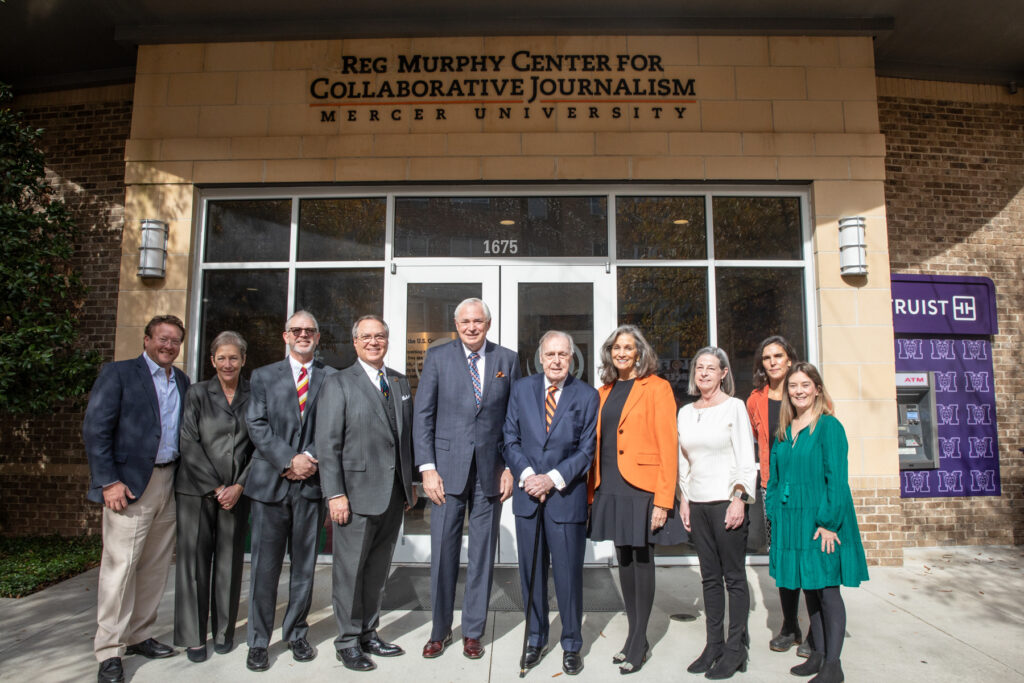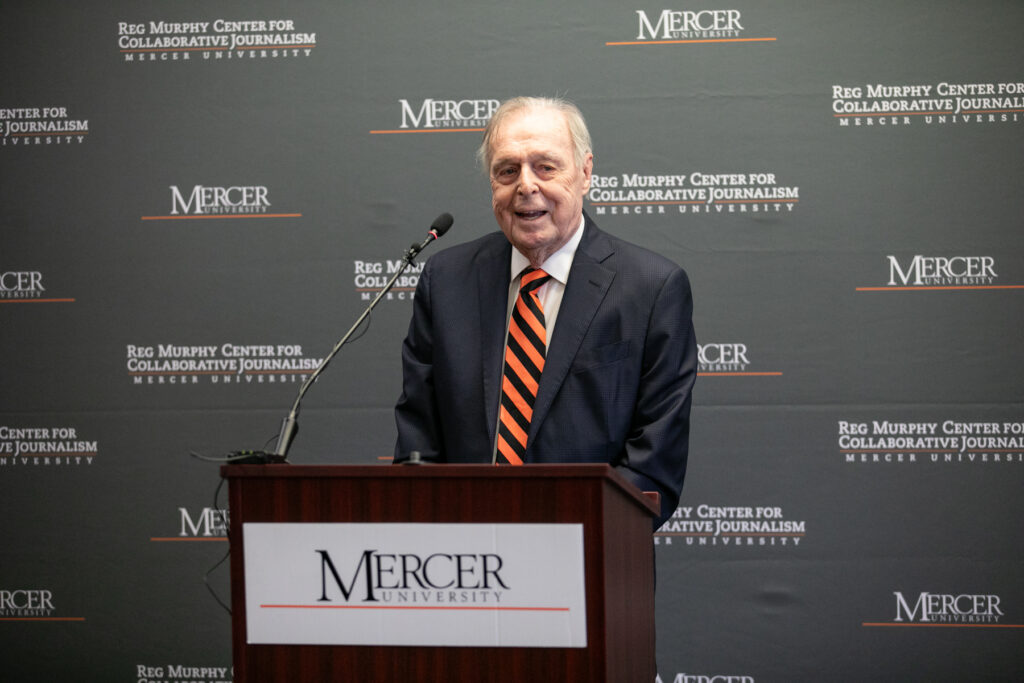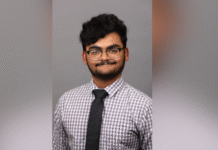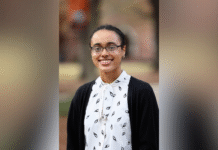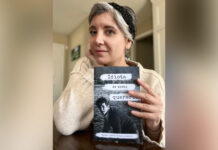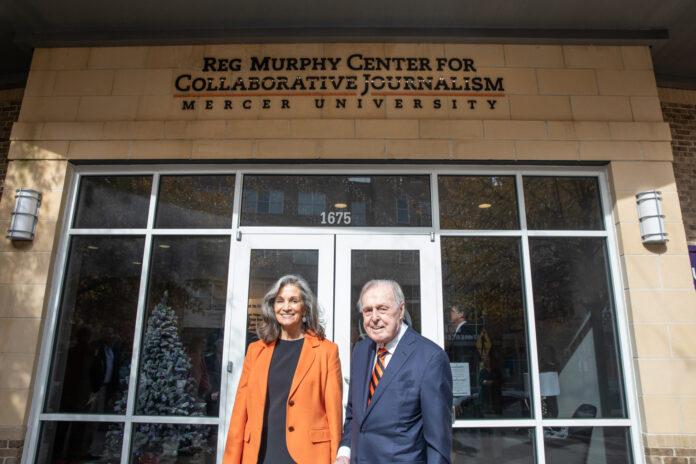
Reg Murphy was a student at Mercer University in the 1950s when he started working as a reporter at the Macon Telegraph covering local news, sports and, later, state politics at the Georgia Capitol.
He went on to spend decades as a journalist at the Atlanta Constitution, San Francisco Examiner and Baltimore Sun, working to uncover the truth, report the facts, and hold those in power accountable. He served as president and CEO of the National Geographic Society from 1996-98.
On Dec. 8, Murphy, 89, returned to Macon as Mercer honored his achievements with the renaming of the Center for Collaborative Journalism as the Reg Murphy Center for Collaborative Journalism, also known as the Murphy Center.
“He was a great journalist, he was a great editor who worked hard to preserve the journalistic integrity of the papers he represented, and he was a great business executive as well — all three essential functions for journalism to be successful,” Mercer President William D. Underwood said. “He’s been a great servant to this University. As a longtime member of our Board of Trustees, he’s helped chart the course for this institution.”
Murphy was part of the original group that envisioned the journalism center, which is training the next generation of journalists.
“The working order of the Murphy Center is this: Our students get real world experience covering issues out in the community, and then our partners get access to a pipeline of talent that keeps journalism moving into the future,” said Debbie Blankenship, director of the Murphy Center. “At the time that the center was being discussed and planned, it was a really novel concept to take a university and pair it with local media partnerships.
“Now, 10-plus years later, there are universities all over the country that have replicated this model.”
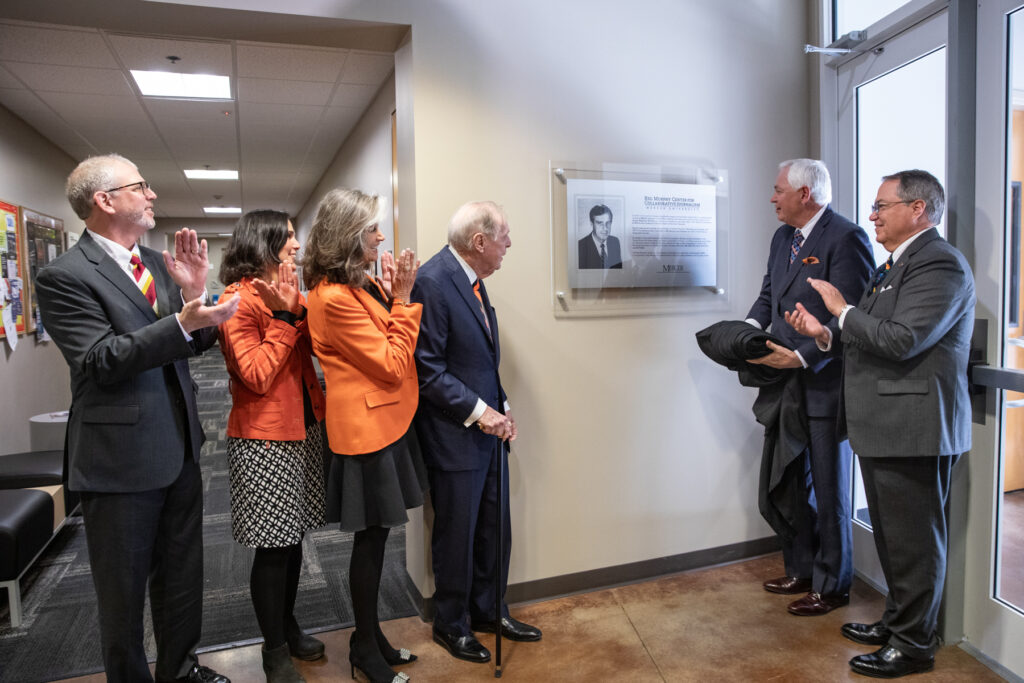
‘A great adventure’
Murphy began his journalistic career during a turbulent time in Georgia. At the time, the South was pulling itself out of the throes of Jim Crow, and many racists occupied state offices, he said.
“Trying to figure out how to deal with all of that was an interesting time,” he said.
As editor of the Atlanta Constitution, he was kidnapped and held ransom for $700,000, which the paper paid and later recovered after Murphy’s release. The kidnapper, who was arrested, claimed to be part of a militia group wanting to stop “the lying of leftist newspapers,” Murphy recalled in a first-person account of the kidnapping in Golf Digest.
When Murphy left the Atlanta Constitution, he became editor of the San Francisco Examiner, which was owned by Randolph Hearst. Hearst’s daughter, Patty, had been kidnapped by a radical group trying to instigate a guerrilla war against the U.S. government. She was later implicated in a bank robbery with the group.
That put Murphy in a challenging position.
“I decided that, and I told (Hearst), I could either make it into a really quality newspaper, or I would leave if he wanted to change that attitude,” Murphy recalled at the renaming ceremony at Mercer. “And he said, no, that he would like for me to stay.”
Murphy stayed, and the newspaper covered Patty Hearst’s arrest and trial, often to the dismay of her parents. Murphy said he fielded many phone calls from Randolph Hearst and his wife, who “would explain to me what kind of person I was, and none of it was nice.”
After Patty Hearst’s conviction, her father made an unusual appearance in the newspaper’s office.
“He came in one day, and he held out his hand, and he dropped onto my desk a key, and it was for a new Porsche. And he said, ‘Thanks for doing a good job with the newspapers,’” Murphy recalled. “I have never been as amazed in my life. … It takes integrity of a different kind for a father to come in and say, ‘You did a good job covering the trial of my daughter, and you spent some real time in a difficult situation. Thank you.’
“I figured that was pretty good pay for that.”
Murphy’s reporting career has taken him to countries across the globe including Russia, China, Japan and the Middle East. He recalled being questioned by authorities in Moscow and the kindness of a hotel kitchen staff who cooked up a chicken for his Thanksgiving dinner in Jerusalem.
“It’s been a great adventure, and it would not have been as good an adventure had I not come to Mercer,” Murphy said. “It was a place where I learned something about the who, what, where, why and how of journalism. The why got to be the really important part.”
Now, American journalism has entered a new era. Preserving it is important for the health of the country and local communities, he said.
“Journalism is, in my mind, sacred,” he said. “It is a sacred trust to tell the truth and to try to give people enough freedom to be able to find the truth and then to pursue it.”
